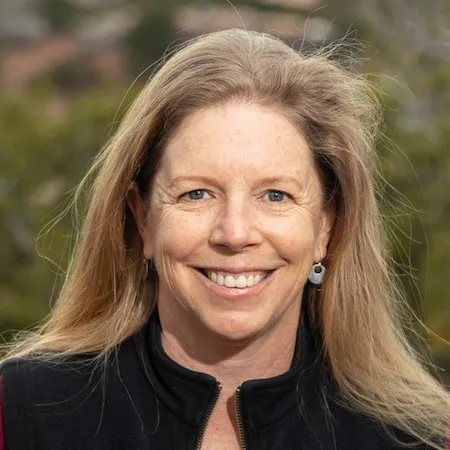Traditionally, most ecological research has studied ecosystems separate from humans. Network approaches provide a potentially powerful quantitative framework for understanding the roles and impacts of humans as a part of ecosystems, in terms of their direct and indirect interactions with other species. This talk discusses recent approaches to data compilation, analysis, and modeling of food webs and interaction networks that explicitly include humans, with an initial focus on non-industrial systems. Such research can provide a new lens for understanding aspects of the sustainability of coupled natural-human systems.
Presenters
Jennifer A. Dunne
Dr. Jennifer Dunne is the Vice President for Science at the Santa Fe Institute (SFI), where she manages all science-related activities at SFI, including the resident and external faculty, postdoctoral programs, seminar series, scientific visitors, working groups and workshops, and sponsored research. Jennifer’s research interests are in analysis, modeling, and theory related to the organization, dynamics, and function of ecosystems. Much of this work focuses on ecological networks, in particular food webs, which specify the complex feeding interactions among species in a given habitat. Drawing...
Jennifer A. Dunne
Dr. Jennifer Dunne is the Vice President for Science at the Santa Fe Institute (SFI), where she manages all science-related activities at SFI, including the resident and external faculty, postdoctoral programs, seminar series, scientific visitors, working groups and workshops, and sponsored research. Jennifer’s research interests are in analysis, modeling, and theory related to the organization, dynamics, and function of ecosystems. Much of this work focuses on ecological networks, in particular food webs, which specify the complex feeding interactions among species in a given habitat. Drawing on cross-system analysis and computational modeling, Jennifer and her collaborators seek to identify fundamental patterns and principles of ecological network structure and dynamics at multiple spatial and temporal scales, including research on ancient food webs from ecosystems many millions of years old. Jennifer received an AB from Harvard where she studied philosophy, an MA in Ecology and Systematic Biology from San Francisco State University, a PhD in Energy and Resources from the University of California Berkeley, and a National Science Foundation Postdoctoral Fellowship in Biological Informatics. Jennifer served as a member of SESYNC’s External Advisory Board.
External Links:
https://scholar.google.com/citations?user=P0Co1HMAAAAJ&hl=en
https://www.santafe.edu/people/profile/jennifer-a-dunne
https://www.researchgate.net/profile/Jennifer_Dunne/
